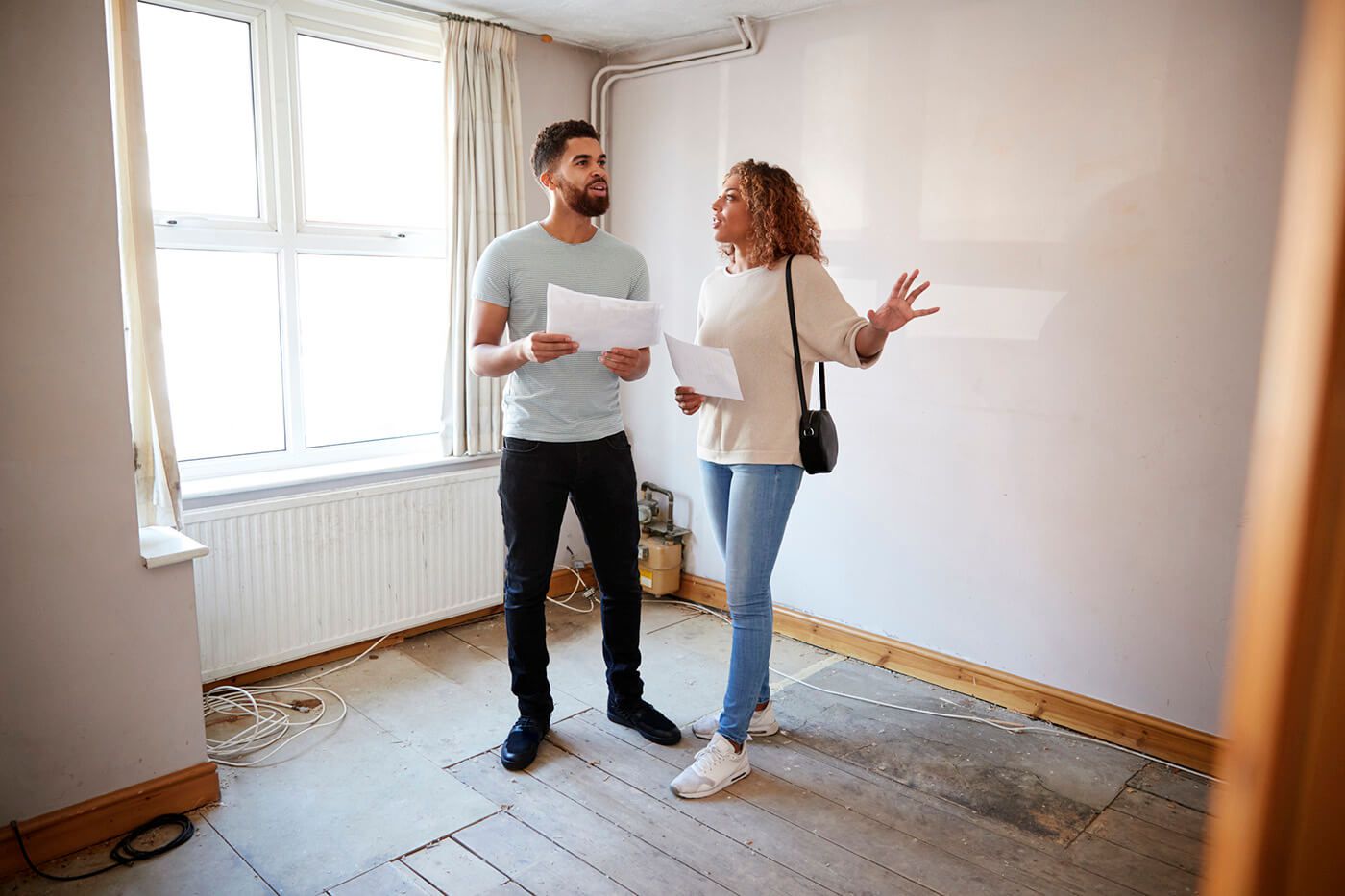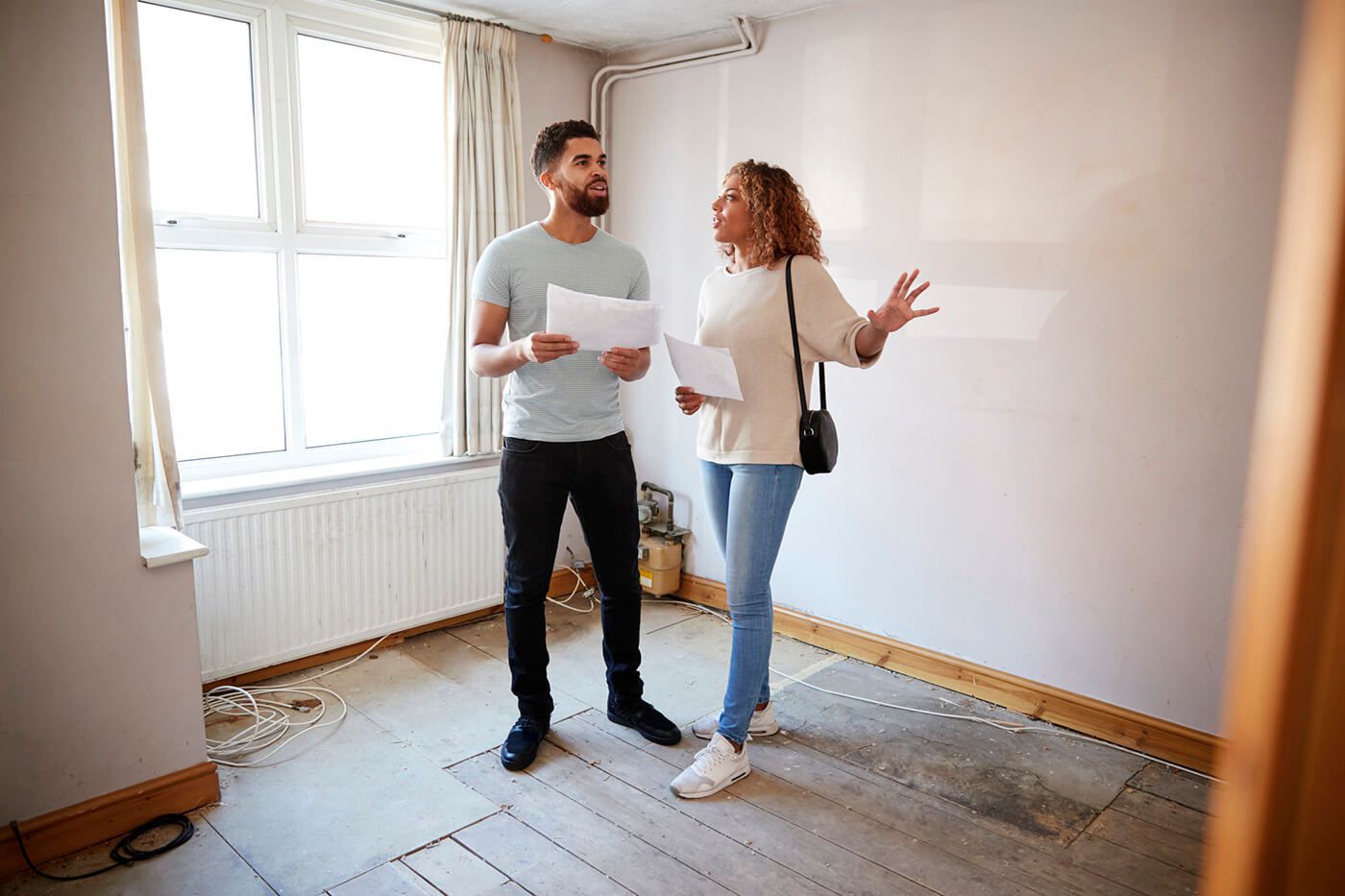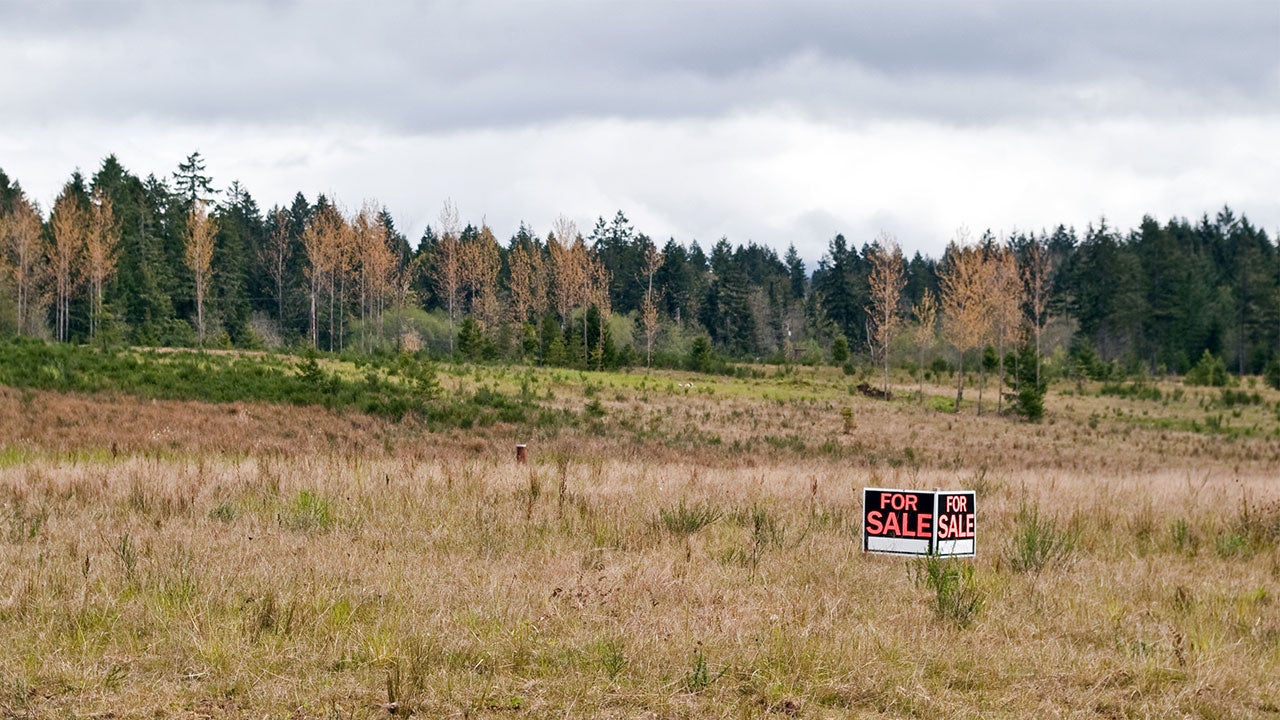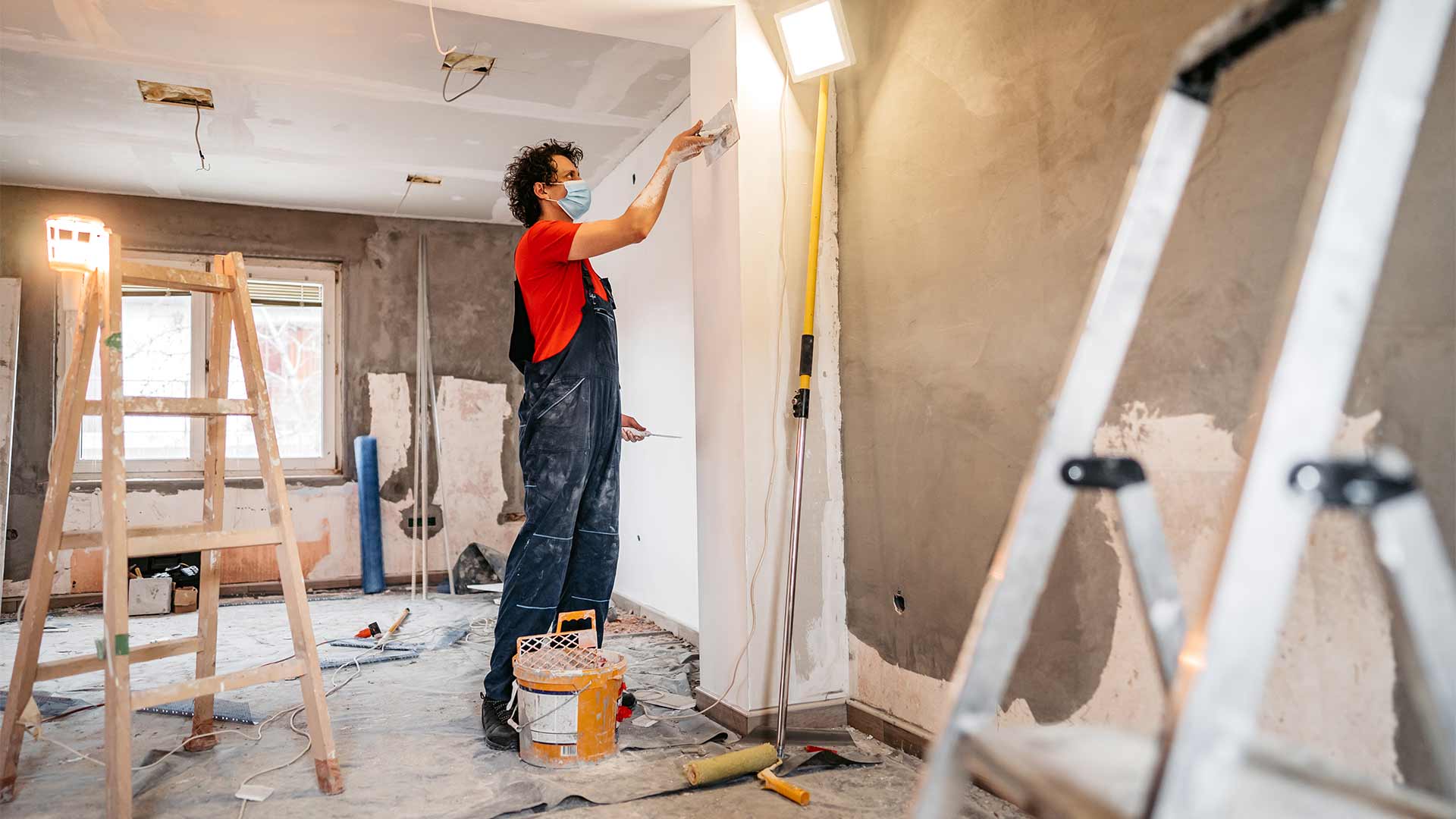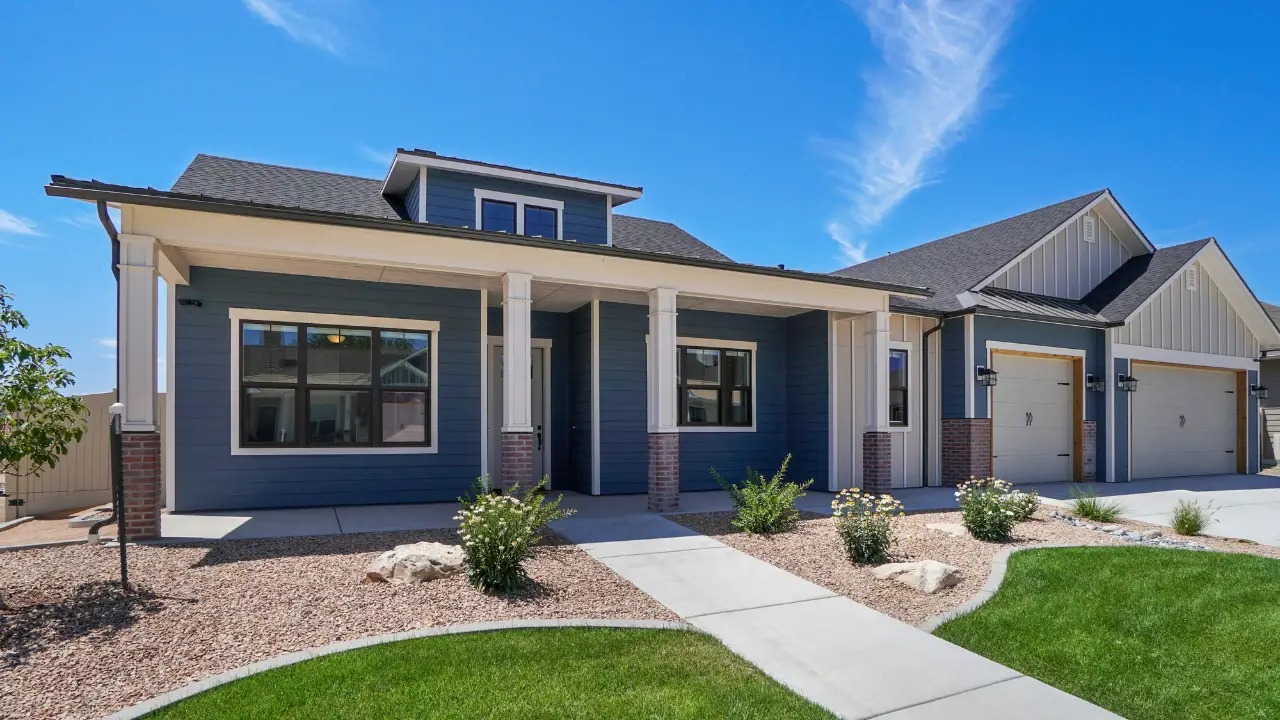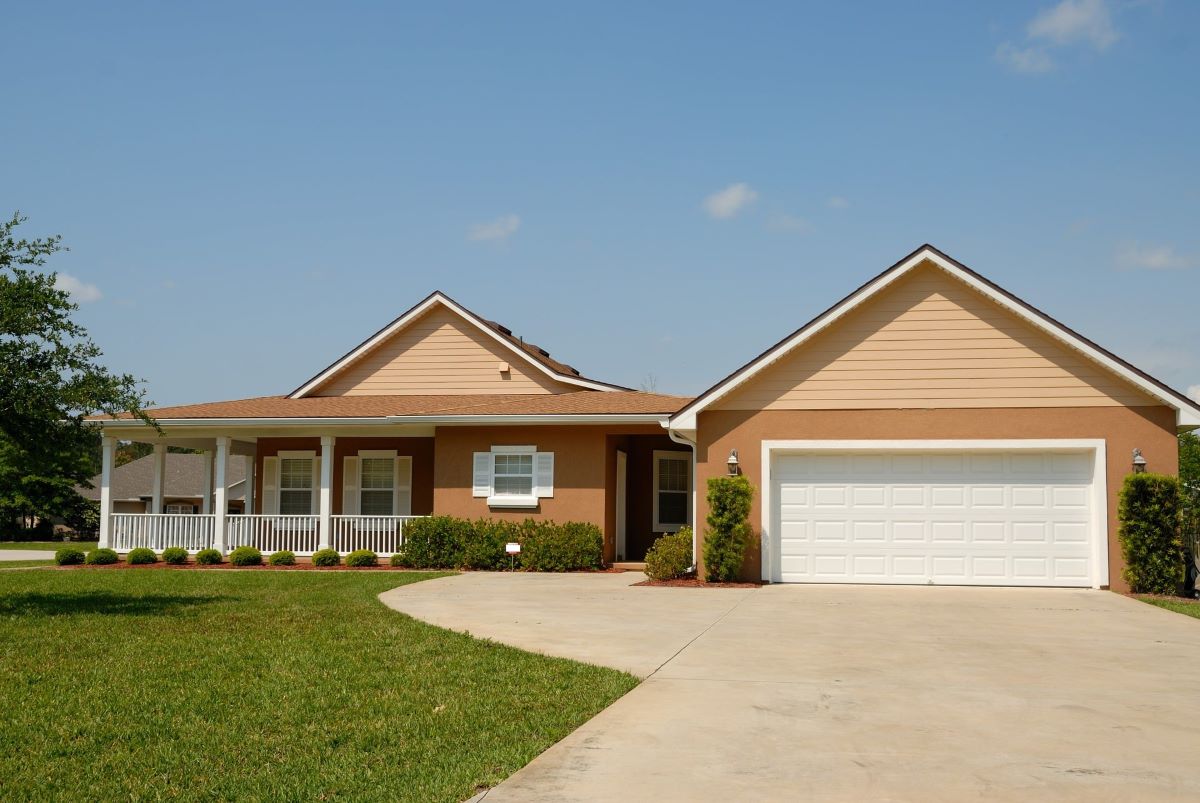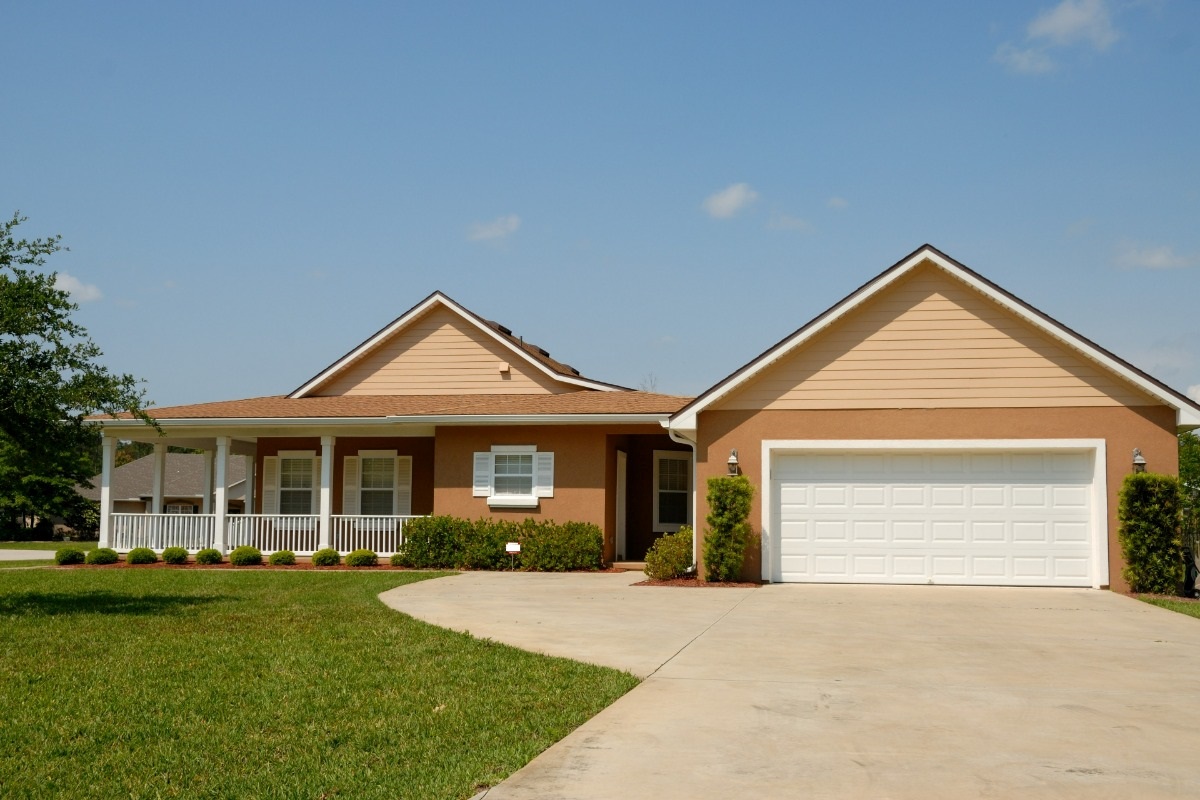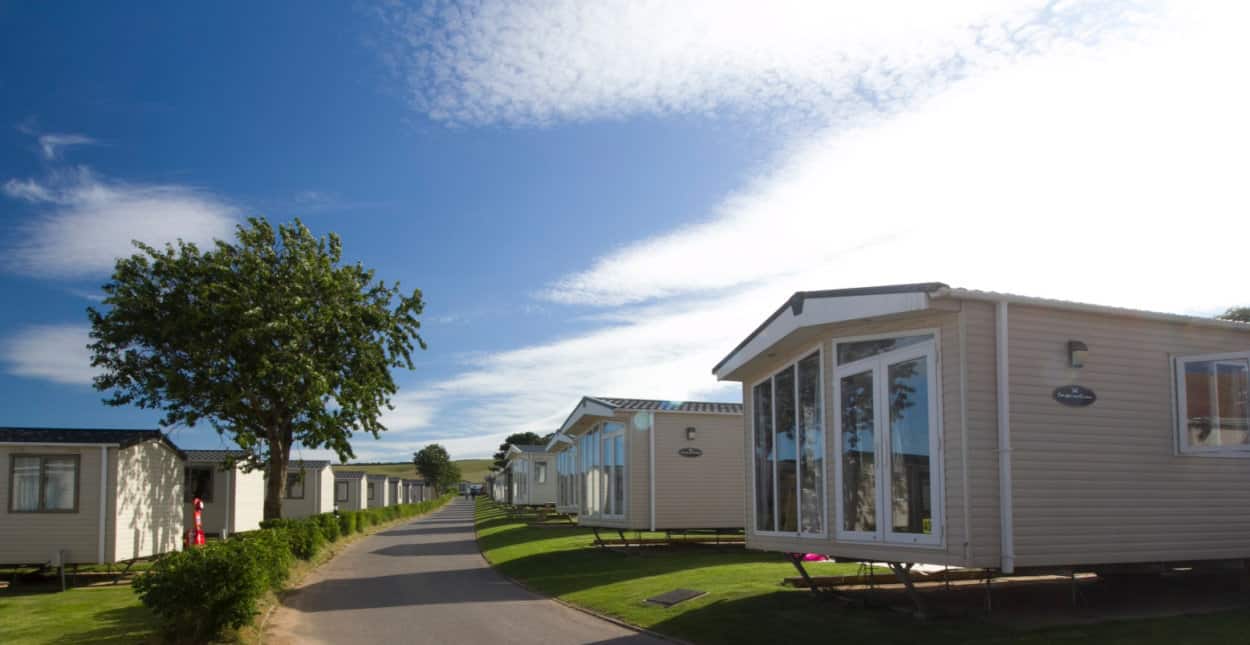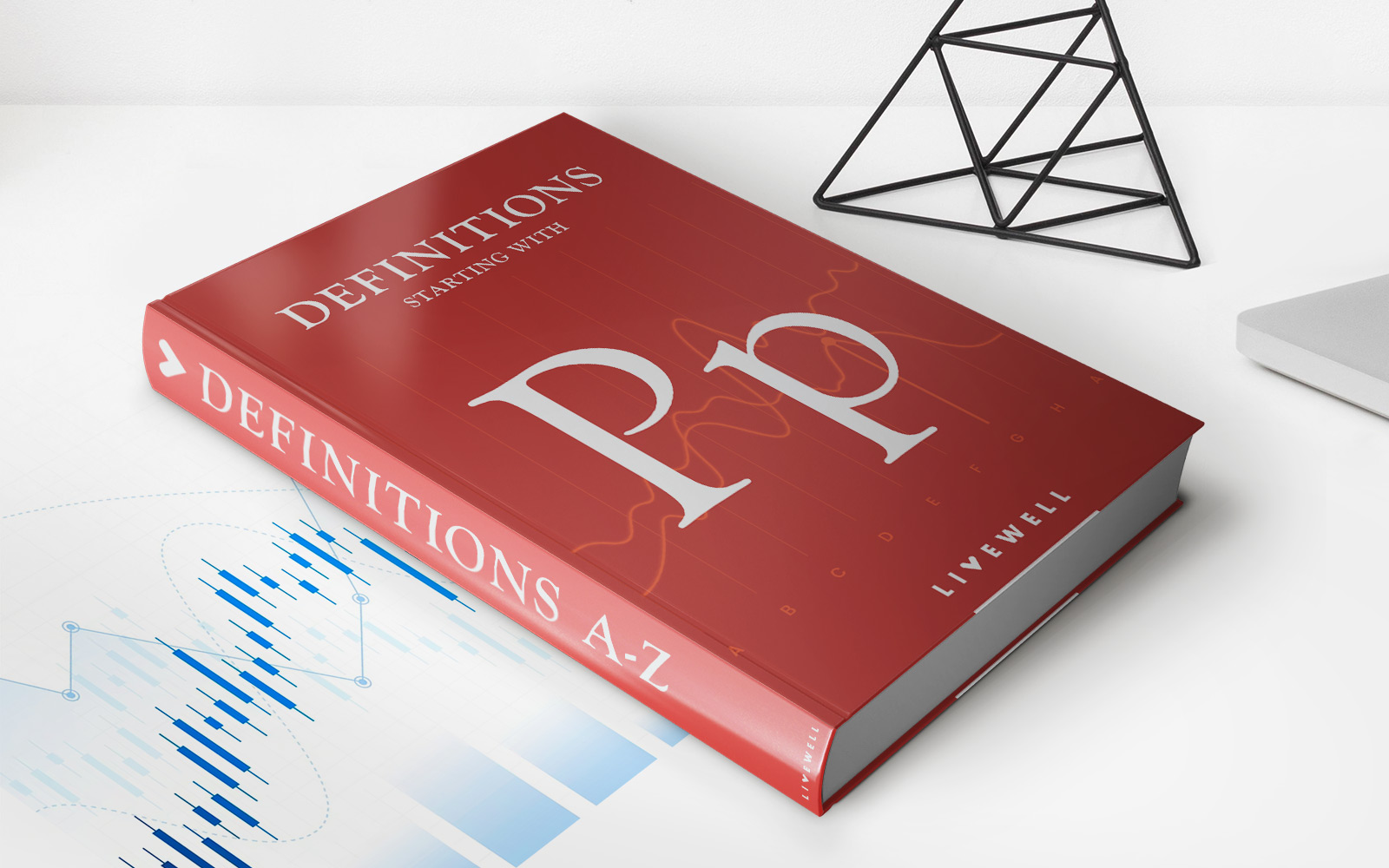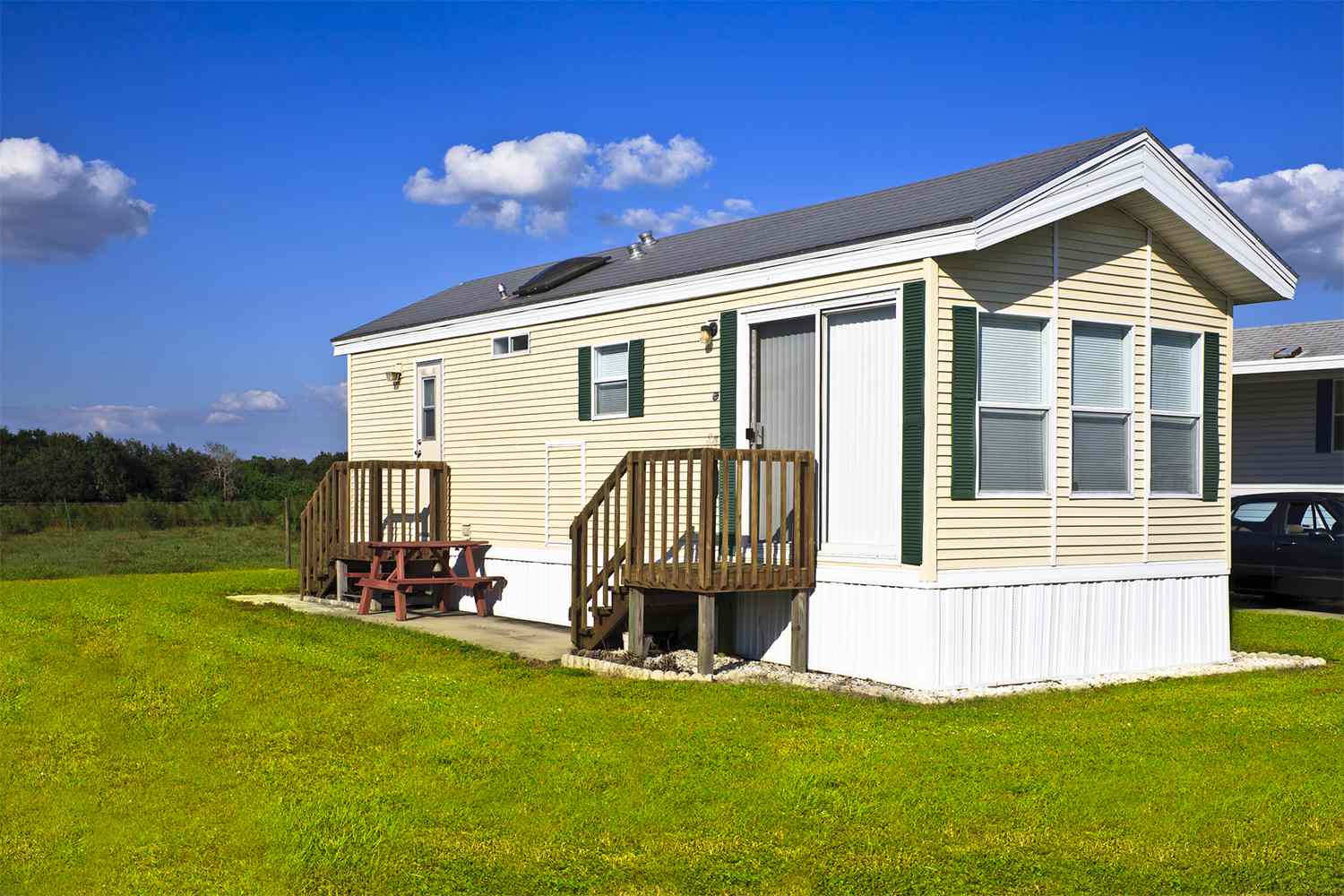

Finance
How To Buy A Mobile Home With Bad Credit
Published: January 12, 2024
# Learn how to finance the purchase of a mobile home even with bad credit. Discover tips and strategies for buying a mobile home with financial flexibility.
(Many of the links in this article redirect to a specific reviewed product. Your purchase of these products through affiliate links helps to generate commission for LiveWell, at no extra cost. Learn more)
Table of Contents
Introduction
Are you dreaming of owning a mobile home but worried about your bad credit? Don’t worry, you’re not alone. Many people face challenges when it comes to financing a mobile home purchase with less-than-ideal credit scores. However, with the right knowledge and strategies, you can still make your dreams of owning a mobile home a reality.
Mobile homes offer an affordable housing option for individuals and families who are looking for a comfortable and convenient place to live. These homes are designed to be moved and are typically located in mobile home parks or communities. Financing a mobile home purchase is different from traditional home financing, and having bad credit can make it even more challenging.
In this article, we will guide you through the process of buying a mobile home with bad credit. We will explore various strategies to improve your credit score, research lenders and loan options, prepare a down payment, gather the required documentation, and ultimately apply for a mobile home loan that fits your financial situation.
While bad credit can present obstacles, it doesn’t mean that you can’t qualify for a mobile home loan. By following the steps outlined in this guide and being proactive in managing and improving your credit, you can increase your chances of securing financing for your mobile home purchase.
Remember, the key is to be patient, persistent, and well-informed. So, let’s dive into the world of mobile home financing and discover how you can make your dream of owning a mobile home a reality, regardless of your credit history.
Understanding Mobile Home Financing
Before diving into the process of buying a mobile home with bad credit, it’s essential to understand how mobile home financing works. Unlike traditional home loans, mobile home financing is specific to manufactured or mobile homes that are built in a factory and then transported to a location.
Mobile homes are classified as either single wide or double wide, referring to their width. Single wide homes are typically 14-18 feet wide and are ideal for individuals or small families, while double wide homes are 20-32 feet wide and offer more space for larger families.
When it comes to financing a mobile home, there are a few key factors to consider:
- Down Payment: Just like traditional home financing, you will need to make a down payment when purchasing a mobile home. The amount required may vary, but it’s typically around 10-20% of the purchase price.
- Interest Rates: Mobile home loans often have higher interest rates compared to regular home loans. This is because mobile homes are considered to be higher risk investments for lenders.
- Loan Terms: The loan terms for mobile homes may be shorter compared to traditional home loans. The repayment period is usually between 15-25 years, depending on the lender and your financial situation.
It’s important to shop around and compare different lenders and loan options to find the best fit for your needs. Look for lenders who specialize in mobile home financing and understand the unique challenges associated with bad credit. They will be more likely to work with you to find a solution that suits your financial situation.
Another important aspect of mobile home financing is the distinction between real property and personal property loans. If your mobile home is permanently affixed to land that you own, it may be classified as real property. In this case, you may be eligible for a traditional mortgage loan. However, if your mobile home is not permanently attached to land, it is considered personal property and financing options may differ.
Understanding these basic concepts of mobile home financing will help you navigate the process more effectively. The next step is to assess your credit situation and take steps to improve your credit score, increasing your chances of qualifying for a mobile home loan with favorable terms.
Assessing Your Credit Situation
When it comes to buying a mobile home with bad credit, the first step is to assess your credit situation. Understanding where you stand financially will help you determine the best course of action to improve your credit and increase your chances of qualifying for a mobile home loan.
Start by obtaining a copy of your credit report from one or all of the major credit bureaus: Equifax, Experian, and TransUnion. Review the report carefully and make note of any errors or discrepancies. If you find any inaccuracies, you have the right to dispute them and have them corrected.
Next, take a close look at your credit score. Mobile home lenders typically have specific credit score requirements, and having a low credit score can make it more challenging to secure financing. If your credit score is below the desired range, it’s essential to take steps to improve it.
There are several strategies you can utilize to improve your credit score:
- Pay Your Bills on Time: Late payments can significantly impact your credit score. Make sure to pay all your bills, including credit cards, loans, and utilities, on time each month.
- Reduce Your Credit Card Balances: High credit card balances can negatively affect your credit score. Aim to keep your credit card utilization below 30% of your available credit.
- Manage Your Debt: If you have outstanding debt, develop a plan to pay it down systematically. Consider consolidating high-interest debts or seeking professional help, such as credit counseling services, if needed.
- Establish a Positive Payment History: Building a positive credit history is crucial. If you have limited credit, consider opening a secured credit card or becoming an authorized user on someone else’s credit card to start establishing a positive payment history.
- Avoid New Credit Applications: While it may be tempting to apply for new credit, it’s best to avoid opening new accounts while trying to improve your credit score. Multiple credit inquiries can have a negative impact on your score.
Improving your credit score takes time and effort, so it’s important to start early. By taking these steps and being consistent in your financial habits, you can gradually raise your credit score and enhance your chances of qualifying for a mobile home loan with better terms.
Once you have assessed your credit situation and made efforts to improve your credit score, you can move on to the next step – researching lenders and loan options that cater to individuals with bad credit.
Improving Your Credit Score
If you have bad credit and want to buy a mobile home, it’s important to take proactive steps to improve your credit score. By doing so, you can increase your chances of qualifying for a mobile home loan with better terms and interest rates. Here are some strategies you can use to improve your credit score:
- Pay Your Bills on Time: One of the most critical factors that impact your credit score is your payment history. Make sure to pay all your bills, including credit cards, loans, and utilities, on time. Consider setting up automatic payments or reminders to avoid any missed or late payments.
- Reduce Your Credit Card Balances: High credit card balances can negatively affect your credit utilization ratio, which is the percentage of available credit that you are currently using. Aim to keep your credit card balances below 30% of your available credit to improve your credit score.
- Pay Off Debt: If you have existing debt, such as student loans or personal loans, work on paying them off or reducing the outstanding balances. Lowering your overall debt will not only improve your credit score but also enhance your debt-to-income ratio, which is an important factor in the loan approval process.
- Avoid Opening New Credit Accounts: While it may be tempting to open new credit accounts, it’s best to avoid doing so while trying to improve your credit score. Opening new accounts can lower the average age of your credit history and result in inquiries on your credit report, which can temporarily lower your score.
- Monitor Your Credit Report: Regularly check your credit report for any errors or discrepancies. If you find any inaccuracies, report them to the credit bureaus to have them corrected. Monitoring your credit report can also help you identify any fraudulent activity.
- Limit Credit Inquiries: Each time you apply for new credit, it results in a hard inquiry on your credit report, which can temporarily lower your score. Avoid unnecessary credit inquiries and only apply for credit when necessary.
- Build a Positive Credit History: If you have limited credit history, consider establishing new credit accounts responsibly. This can be done by opening a secured credit card or becoming an authorized user on someone else’s credit card. Make sure to make timely payments and keep your credit utilization low.
Improving your credit score takes time and effort, so it’s important to be patient and consistent in your financial habits. By implementing these strategies, you can gradually improve your credit score and increase your chances of securing a mobile home loan with favorable terms. Remember, every small step you take to improve your credit can have a positive impact on your overall financial well-being.
Once you have made progress in improving your credit score, it’s time to research lenders and loan options that cater to individuals with bad credit. Being well-informed about your options will empower you to make the best decision for your mobile home purchase.
Researching Lenders and Loan Options
When buying a mobile home with bad credit, it’s crucial to research lenders and loan options that specialize in financing for individuals with less-than-perfect credit. By finding the right lender, you can increase your chances of securing a mobile home loan that fits your financial situation. Here are some steps to consider when researching lenders and loan options:
- Explore Online Lenders: Start by searching online for lenders that offer mobile home loans. Look for lenders who have experience working with borrowers with bad credit and who specialize in mobile home financing. Read reviews and check their credentials to ensure they are reputable.
- Speak with Local Banks and Credit Unions: Check with local banks and credit unions in your area to see if they offer mobile home loans. Some smaller financial institutions may be more willing to work with borrowers who have bad credit, especially if you have a relationship with them.
- Consider Government-backed Loan Programs: Look into government-backed loan programs, such as FHA loans or VA loans. These programs often have more lenient credit requirements and offer options for mobile home financing.
- Compare Interest Rates and Loan Terms: As you research different lenders and loan options, compare the interest rates and loan terms they offer. Pay attention to the Annual Percentage Rate (APR), which includes both the interest rate and any additional fees, as it will give you a more accurate picture of the total cost of the loan.
- Check for Pre-qualification: Some lenders may offer pre-qualification, which allows you to get an estimate of the loan amount you may be eligible for without a hard credit check. This can help you narrow down your options and focus on lenders who are more likely to approve your loan application.
- Read the Fine Print: Before committing to a specific lender or loan option, read the terms and conditions carefully. Understand the repayment terms, any potential fees or penalties, and any other requirements for securing the loan.
- Seek Professional Guidance: If you’re having difficulty finding lenders or loan options that work for you, consider seeking guidance from a mortgage broker or a financial advisor who specializes in mobile home financing. They can help you navigate the complex landscape and find the best solution for your specific needs.
Remember, the goal is to find a lender who is willing to work with your bad credit and offers favorable loan terms. Don’t be discouraged if you face rejections from some lenders. Keep exploring your options until you find a lender who understands your financial situation and is willing to assist you in achieving your goal of buying a mobile home.
Once you have identified potential lenders and loan options, it’s time to prepare a down payment that is required for the purchase of a mobile home.
Preparing a Down Payment
When buying a mobile home, it’s important to be prepared to make a down payment. Just like with traditional home loans, a down payment is usually required when financing a mobile home purchase. The down payment amount can vary depending on the lender, but it typically ranges from 10% to 20% of the purchase price.
Preparing for a down payment involves careful financial planning and saving. Here are some steps to help you prepare for your mobile home down payment:
- Set a Savings Goal: Determine how much you need to save for your desired down payment. Research and calculate the estimated down payment based on the purchase price of the mobile home you have in mind.
- Create a Budget: Evaluate your current income and expenses to identify areas where you can cut back and save more. Create a budget that allows you to allocate a portion of your income towards your down payment savings.
- Automate Your Savings: Set up automatic transfers from your checking account to a separate savings account dedicated to your down payment. This will ensure that you consistently save a portion of your income without the temptation of spending it.
- Reduce Unnecessary Expenses: Cut back on non-essential expenses such as dining out, entertainment, or shopping. By making small adjustments to your spending habits, you can save more money towards your down payment.
- Save Windfalls or Bonuses: If you receive any unexpected income, such as bonuses or tax refunds, consider putting a portion or all of it towards your down payment savings.
- Explore Down Payment Assistance Programs: Look into local or national down payment assistance programs that may be available to help individuals with limited funds for a down payment. These programs can provide grants or low-interest loans to help you with your down payment.
- Consider Financial Gifts: If your family or friends are willing and able, consider asking them for a financial gift towards your down payment. Make sure to consult with your lender about any restrictions or requirements regarding gifted funds.
- Monitor Your Progress: Regularly track your savings progress towards your down payment goal. Celebrate milestones and stay motivated by seeing your progress towards homeownership.
Preparing a down payment requires discipline, determination, and careful financial management. By following these steps and staying committed to your savings plan, you will be one step closer to achieving your goal of buying a mobile home.
Once you have successfully saved for your down payment, it’s time to gather the necessary documentation required for the loan application process.
Gathering Required Documentation
When applying for a mobile home loan, you will need to provide certain documents to the lender. Gathering these required documents in advance can help streamline the loan application process and increase your chances of approval. Here are the essential documents you will typically need:
- Proof of Income: This includes recent pay stubs, W-2 forms, or tax returns if you are self-employed. Lenders will need to verify your income to assess your ability to repay the loan.
- Proof of Assets: Compile a list of your assets, such as bank statements, investment account statements, and documentation of any other valuable assets you own.
- Proof of Identification: Provide a valid form of identification, such as a driver’s license, passport, or government-issued ID.
- Proof of Residence: Furnish documents that establish your current address, such as utility bills, rental agreements, or a copy of your mortgage statement if you own a property.
- Employment Verification: Provide contact information for your current employer, including their name, address, and phone number, or a letter of employment stating your position, salary, and length of employment.
- Bank Statements: Gather recent bank statements from your checking and savings accounts to demonstrate your financial stability.
- Proof of Insurance: Some lenders may require proof of insurance for the mobile home. Contact insurance providers to obtain a policy or quote.
- Social Security Number: Be prepared to provide your Social Security number for credit checks and identification purposes.
It’s important to note that the specific documentation required may vary depending on the lender and your individual circumstances. It’s a good idea to inquire with your chosen lender or mortgage broker in advance to ensure you have all the necessary documents available.
Make sure to gather and organize these documents in a secure and accessible location. Having them readily available when you are ready to apply for a mobile home loan will save you time and make the process smoother.
Once you have gathered the required documentation, you can move forward with the loan application process and start exploring your options for securing a mobile home loan with bad credit.
Applying for a Mobile Home Loan
After completing the necessary preparations, it’s time to apply for a mobile home loan. Applying for a loan with bad credit may require some additional effort, but it is still possible to secure financing for your mobile home purchase. Here are the key steps to applying for a mobile home loan:
- Contact Potential Lenders: Reach out to the lenders you have researched and identified as potential options. Discuss your situation and inquire about their mobile home loan products specifically designed for individuals with bad credit.
- Complete the Loan Application: Fill out the loan application provided by the lender. Include accurate and up-to-date information to ensure a smooth application process.
- Submit the Required Documentation: Provide the lender with all the required documentation. This may include proof of income, proof of assets, identification, employment verification, bank statements, proof of insurance, and any additional documents requested by the lender.
- Approval Process: The lender will review your application and documentation to assess your eligibility for the loan. They will evaluate factors such as credit history, income, employment, and debt-to-income ratio.
- Loan Terms and Conditions: If approved, the lender will provide you with the loan terms and conditions. Carefully review and understand all aspects of the loan, including the interest rate, repayment period, monthly payments, and any associated fees.
- Acceptance and Closing: Once you have reviewed and accepted the loan terms, the lender will proceed with the closing process. This typically involves signing the loan documents and finalizing the details of the loan.
During the application process, it’s important to communicate openly and honestly with the lender. Be prepared to explain any negative items on your credit report or gaps in employment. Providing a solid explanation and demonstrating your commitment to improving your financial situation can potentially strengthen your application.
Additionally, keep in mind that there may be different loan options available, such as fixed-rate or adjustable-rate mortgages. Take the time to consider the pros and cons of each option and select the one that best fits your financial goals and needs.
If you are facing difficulty getting approved for a mobile home loan due to bad credit, consider working with a mortgage broker specializing in bad credit situations. They can leverage their industry knowledge and connections to identify lenders who may be more flexible in their underwriting criteria.
Remember, even if you encounter rejections from certain lenders, don’t give up. Keep exploring your options and remaining persistent. There are lenders out there who are willing to work with individuals with bad credit, and with patience and perseverance, you will increase your chances of finding the right loan for your mobile home purchase.
Now that you have applied for a mobile home loan, it’s time to negotiate loan terms and ensure that you are getting the best deal possible.
Negotiating Loan Terms
When applying for a mobile home loan with bad credit, it’s essential to be proactive in negotiating loan terms that are favorable for your financial situation. Here are some key strategies to help you negotiate the best loan terms possible:
- Research and Compare: Use your research to compare loan options from different lenders. Look for lenders who specialize in mobile home financing and have experience working with borrowers with bad credit. Compare interest rates, loan terms, and fees to identify the most competitive offers.
- Highlight Your Financial Strengths: Even with bad credit, there may be other aspects of your financial situation that can work in your favor. If you have a stable income, substantial savings, or a low debt-to-income ratio, emphasize these aspects during the negotiation process to demonstrate your ability to repay the loan.
- Show Willingness to Improve: Express your commitment to improving your credit and financial situation. Lenders may be more willing to negotiate if they see that you are taking steps to repair your credit and establish better financial habits.
- Consider a Co-signer: If possible, find a trusted co-signer with good credit who is willing to guarantee the loan. This can help lower the perceived risk for the lender and potentially lead to more favorable loan terms.
- Offer a Larger Down Payment: A larger down payment demonstrates your financial stability and decreases the lender’s risk. Consider saving a larger down payment, if feasible, as it may help in negotiating better loan terms.
- Discuss Interest Rates and Fees: Talk to the lender about the interest rate and any associated fees. If you have received offers from other lenders with better terms, mention them and ask if the lender can match or improve upon those terms.
- Request Loan Term Adjustments: Depending on your financial goals, you may want to negotiate the length of the loan term. Shortening the term can save you money on interest payments, but it may also increase your monthly payments. Find a balance that works for your budget.
- Get Everything in Writing: Once you reach an agreement with the lender, make sure to get all the negotiated terms in writing. Carefully review the loan agreement before signing and ask any questions you may have.
Remember, lenders want to work with borrowers who pose the least risk, so be prepared to present yourself as a responsible borrower. By showcasing your commitment to improving your credit and providing evidence of your financial stability, you can strengthen your negotiation position and potentially secure better loan terms.
However, it’s important to be realistic in your expectations. Bad credit can limit your bargaining power, and you may not be able to secure the same terms as someone with excellent credit. What’s crucial is to find a loan that is manageable for your financial situation and allows you to achieve your goal of purchasing a mobile home.
Once you have successfully negotiated the loan terms and are satisfied with the agreement, you can move forward with the closing of your mobile home loan and finalize the purchase process.
Closing the Deal
After navigating the steps of the mobile home financing process, negotiating loan terms, and finalizing the details, it’s time to close the deal and complete the purchase of your mobile home. The closing process involves several crucial steps to ensure a smooth transition. Here’s what you can expect during this phase:
- Loan Review: Before closing, the lender will review all the loan documentation to ensure accuracy and compliance with their requirements. They will verify your financial information, employment, and credit standing once again.
- Insurance Verification: The lender may require proof of insurance coverage for your mobile home. Ensure you have obtained a suitable insurance policy and provide the necessary documentation to the lender.
- Property Appraisal: In some cases, the lender may request an appraisal of the mobile home to determine its value. The appraisal report helps the lender ensure they are providing an appropriate loan amount based on the property’s worth.
- Closing Disclosure: The lender will provide you with a closing disclosure, which outlines the final loan terms, interest rate, monthly payment, and any associated fees or closing costs. Review this document carefully and compare it to the loan estimate you received earlier.
- Finalize Closing Date: Coordinate with the lender, seller, and any other parties involved to set a closing date. This date is when all parties will gather to sign the necessary documents.
- Signing Documents: On the day of closing, you will meet with the seller, lender, and possibly a closing agent or attorney to sign the loan documents. Review each document thoroughly and ask questions if anything is unclear.
- Paying Closing Costs: You will need to pay any closing costs or fees associated with the loan. These costs may include loan origination fees, appraisal fees, title fees, and prepaid taxes or insurance.
- Transfer of Ownership: Once all documents have been signed and funds have been exchanged, the ownership of the mobile home will be transferred to you. The seller will provide the necessary paperwork and keys.
It’s crucial to read and understand all the documents you are signing during the closing process. If something seems unclear or you have any questions, don’t hesitate to ask for clarification. Remember, this is your opportunity to ensure that all the terms and conditions align with what you agreed upon during the negotiation stage.
Once the closing is complete, congratulations! You are now the proud owner of a mobile home. Keep in mind that homeownership comes with responsibilities, such as maintaining the property and making timely mortgage payments. By staying proactive and responsible, you can enjoy the benefits of mobile home ownership.
Now that you’ve successfully closed the deal, take a moment to celebrate your accomplishment. Owning a mobile home is an exciting milestone, and it’s time to start creating memories in your new home!
Conclusion
Buying a mobile home with bad credit may present its challenges, but with the right knowledge and strategies, it is entirely possible to make your dream of homeownership a reality. By understanding mobile home financing, assessing your credit situation, improving your credit score, researching lenders, preparing a down payment, gathering required documentation, applying for a loan, negotiating loan terms, and closing the deal, you can successfully navigate the process of buying a mobile home.
Remember, patience, persistence, and proactive financial management are key throughout this journey. It’s essential to be realistic about your financial situation and focus on taking steps to improve your credit score over time. Building a positive credit history and demonstrating your financial responsibility can open doors to better loan options and more favorable terms.
While bad credit may limit some options, there are lenders who specialize in working with individuals who have less-than-ideal credit scores. By researching, comparing, and negotiating loan terms, you can find a financing solution that meets your needs and helps you achieve your goal of owning a mobile home.
Keep in mind that homeownership comes with responsibilities. Make sure to budget for monthly mortgage payments, insurance, and ongoing maintenance costs. Responsible homeownership will not only contribute to your financial well-being but also allow you to enjoy the comforts and stability of owning your own home.
Lastly, always seek professional advice when needed. Mortgage brokers, financial advisors, and real estate professionals can provide invaluable guidance throughout the process. They have the expertise and industry knowledge to assist you in making informed decisions and navigating potential challenges.
So, don’t let bad credit stand in the way of your dreams. Take the necessary steps to improve your credit, research lenders, and explore loan options that fit your situation. With determination and perseverance, you can overcome obstacles and embark on this exciting journey towards mobile home ownership.
